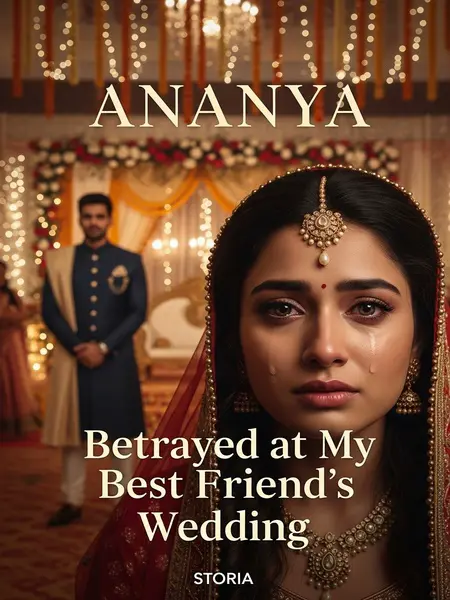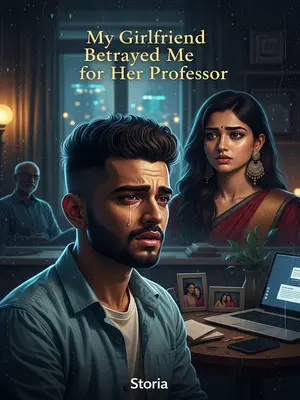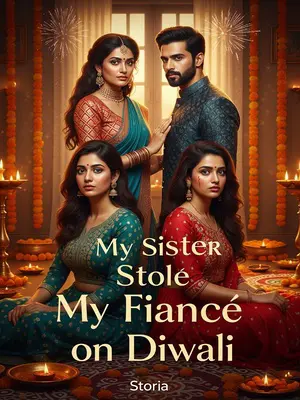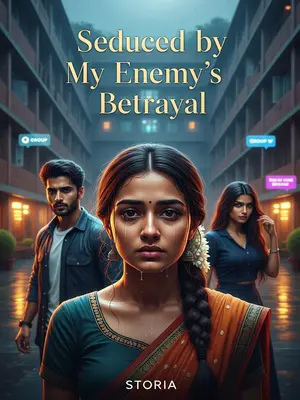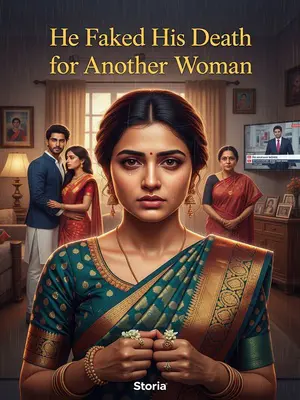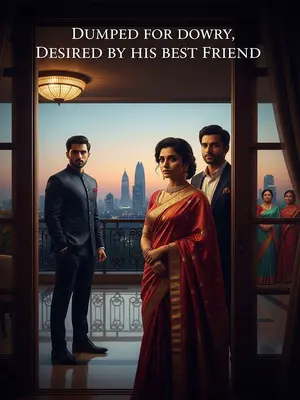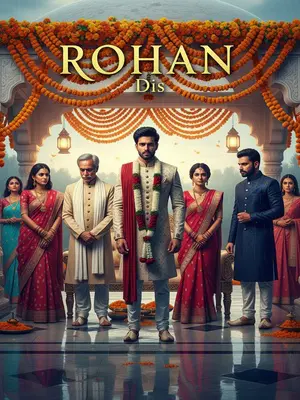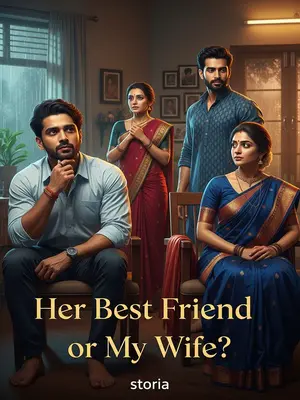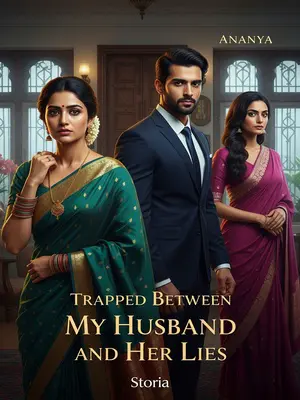Chapter 1: Shehnai and Silences
The shehnai’s wail fought with the DJ’s bass, and somewhere in between, I was just another girl in a silk saree, clutching her phone and her pride. The mandap shimmered with fairy lights, marigold garlands hung heavy in the air, and everywhere was the sticky-sweet scent of ghee sweets. But the only thing thicker than the summer humidity of Pune was the weight of Rohan’s silence beside me.
I kept adjusting my saree pallu, letting my fingers nervously fidget with the edge, my bangles clinking softly. Each movement was an excuse to avoid the ache inside, but my mind stubbornly circled back to his coldness, replaying the last three days, trying to decode what had changed.
He stood with the groomsmen, tall and straight, black suit sharp against the rose petals scattered on the floor. I was with the bridesmaids, my side a swirl of laughter and jasmine-scented braids. The divide was clear: boys on one side, girls on the other, but my eyes kept tracking him through the noisy chaos of the baraat, through the teasing and the clamor of aunties calling out, "Pani puri ka counter kidhar hai?"
Even in the swirl of wedding games and photo sessions—punctuated by the loudspeaker’s crackle and a toddler’s shriek—my heart kept scanning for him, as if it would find the old warmth hidden in his averted gaze. It was almost as if our hearts had become strangers overnight, even while sharing the same hall, the same memories.
During the wedding games, Rohan lost. The room erupted in claps, whistles, and the faint smell of mogra. His cheeks flushed red—maybe from embarrassment, maybe from the heat, or maybe just from the gaze of a hundred curious relatives.
His punishment? Carry all the bridesmaids downstairs on his back. “Arrey, hero ban na, Rohan!” someone shouted, and the crowd roared. The staircase was covered in rose petals, payal tinkling with every step, and the noise of uncles arguing about the AC being too cold in the background.
He played along, grinning at each girl he carried—cracking jokes, laughing loudly at someone’s joke, the way he used to with me. But when it was my turn, his smile faded. He looked away, suddenly tired, his body tense. My chest tightened, as if someone had sprinkled mirchi powder on an open wound.
Among us, a sweet-looking bridesmaid in a pink lehenga, hair braided with jasmine, piped up, “Do you have a girlfriend?” Her voice was teasing, but her eyes sparkled, bold and shamelessly festive, the type every shaadi has.
He glanced at me—quick, apologetic, but cold. “No.” The word cut through the music. Even the dhol seemed to pause for a second.
The girl pressed on, “Then can I try my luck?” Her friends giggled, hands over mouths, not even pretending to be subtle. She spun, her laughter rising above the din.
Rohan gave her that formal, empty smile—the one he reserved for distant relatives at functions. “Of course.”
That smile used to be mine. Now, it was as hollow as the echo in my heart, twisting my insides with pain.
The fairy lights blurred. Even the crackle of the loudspeaker, the smells of rosewater and chaat, faded. For a moment, I was swallowed by the crowd, utterly alone.
I pressed my palms together, the way Amma does when she’s trying not to lose her temper, and swallowed the lump in my throat. But the ache lingered, raw and relentless.
I laughed with everyone, but inside, I was already saying goodbye.
